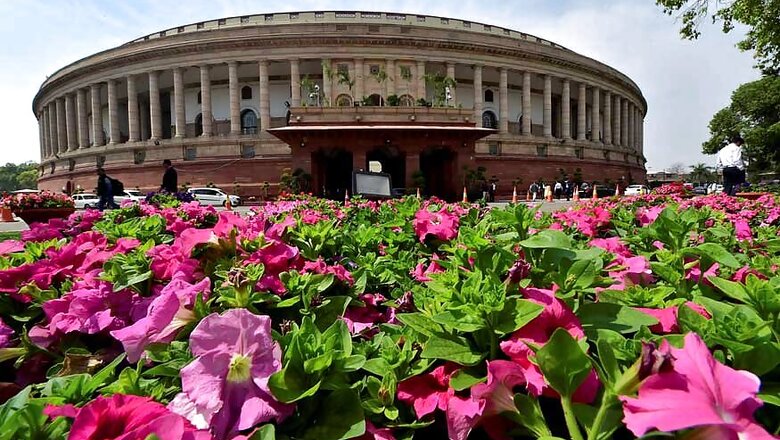
views
New Delhi: This year’s Budget session has been the worst when it comes to productivity in the last eight years.
During the 22 sittings in the session so far, the productivity in Lok Sabha, reports say, was just 25 percent and 35 percent in the Rajya Sabha as opposed to last year's budget session that had 108 percent productivity in the Lok Sabha and 86 in the Rajya Sabha.
The 2018 budget session was slotted to have 31 sittings (eight in the first part and 23 in the second) spread over 68 days. The first leg of the session was scheduled between January 29 and February 9, the second from March 5 to April 6.
At least 28 Bills were to be tabled in the Lok Sabha, while 39 were listed for the Rajya Sabha.
As of April 6, the session’s last day, MPs in Lok Sabha would have spent only 14-and-a-half hours debating the Budget while Rajya Sabha spent nearly 10 hours. Also, it will have approved a Budget of over Rs 24 lakh crore with MPs spending less than a day discussing it.
Data provided by PRS Legislative Research, a non-profit organisation, showed that this was the least amount of time spent by a Parliament deliberating the Budget since 2000. In the last ten sessions, the average amount of time debating the Budget has usually been around 20% or 33 hours of the Parliament's allotted time.
In terms of productivity though, 2018 session was the fourth worst in terms of debating the Budget. Data by PRS Legislative, which collated session sittings and bills passed from the year 2000, shows that the winter session in 2010 saw even fewer hours of productive work, as did sessions in 2013 and 2016.
The percentage of time utilised by MPs was a staggeringly low 6% in 2010, while it was barely better in 2013 and 2016 at 15% in Lok Sabha. Rajya Sabha didn’t do any better either, using only 2% of available hours in 2010.
The primary scrutiny of the Budget is done on the floor of the House through general discussion and detailed deliberations on the demand for grants of various ministries. In the general discussion, the House discusses the Budget, which lasted for only a few hours in this budget session. A general discussion is followed by a discussion on demand for grants of specific ministries.
The utilisation of Question Hour has also been very low this session. Only 16 percent of the scheduled time was used to ask questions in Lok Sabha. The Rajya Sabha fared worse at 5 percent. The Question Hour is traditionally time utilised by MPs to question the government on policies and other issues of public interest.
There are several key issues that needed to be discussed during the Budget session, but half of them have not been taken up due to daily disruption.
Interestingly, Union minister Ananth Kumar has said that MPs of the ruling NDA will forego their salary for the 23 days of the ongoing budget session when Parliament did not function because of protests by the Congress and other political parties.
Kumar blamed the Congress for the logjam in both the Houses of Parliament, saying that it had engaged in "anti-democratic" politics.

















Comments
0 comment